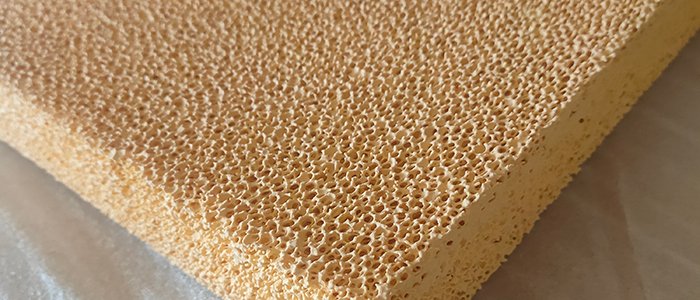The Birth of Precision Casting
Precision casting, also known as investment casting or lost-wax casting. Its origins can be traced back to ancient times when artisans used wax patterns to create intricate metal components. However, it was in the 19th and 20th centuries that precision casting truly flourished as a manufacturing technique.
The Automotive Industry’s Demand for Excellence
As the automotive industry emerged in the early 20th century, the demand for high-precision auto parts soared. Germany’s automotive manufacturers, including industry giants like Mercedes-Benz, BMW, and Volkswagen, recognized that precision casting was the key to producing components that could withstand the rigors of the road while delivering top-tier performance.
Precision Casting Techniques
Wax Pattern Creation:
Meticulously crafted wax patterns are created, replicating the exact dimensions and intricacies of the desired auto part.
Ceramic Shell Formation:
These wax patterns are then coated with multiple layers of ceramic slurry, forming a robust ceramic shell around the pattern.
De-Waxing:
The ceramic shells are subjected to high temperatures, causing the wax to melt and flow out, leaving behind a precise mold cavity.
Metal Pouring:
Molten metal, often alloys of aluminum, steel, or other materials, is poured into the ceramic mold to create the auto part.
Precision Machining:
After casting, components may undergo precision machining to achieve the required tolerances and surface finish.
The Role of Ceramic Foam Filters
Ceramic foam filters have emerged as an indispensable component in the precision casting process. These filters, often made of Silicon Carbide (SiC) or other materials, serve multiple crucial functions:

Metal Cleanliness:
Ceramic foam filters excel at removing impurities, inclusions, and solid particles from the molten metal as it is poured into the ceramic mold. This leads to a cleaner and more homogeneous final product.
Flow Control:
The foam-like structure of these filters helps regulate and control the flow of molten metal into the mold. Proper flow control minimizes turbulence, which can introduce defects into the casting.
Enhanced Casting Properties:
Cleaner metal, thanks to the use of ceramic foam filters, results in improved mechanical properties in the final auto part, such as increased tensile strength and reduced porosity.
Surface Finish:
The filters contribute to a smoother surface finish on the castings, reducing the need for extensive post-casting machining.
Evolution and Innovation
The precision casting industry has continually evolved to meet the demands of the automotive sector. Continuous research and development efforts have led to innovations in ceramic foam filter technology, optimizing their effectiveness and durability.
Quality Standards and Certifications
Precision in auto part casting is underlined by stringent quality standards and certifications. Manufacturers adhere to internationally recognized quality management systems to ensure that every component meets or exceeds the highest industry standards.
Global Impact
The precision casting of auto parts manufacturers exports their expertise and components to automakers worldwide, contributing to the global automotive industry’s drive for excellence.
Sustainability and Environmental Responsibility
The precision casting industry is not only committed to precision and quality but also to sustainability and environmental responsibility. Efforts are underway to minimize the environmental impact of precision casting processes. This includes the adoption of more energy-efficient furnaces, the recycling of materials, and the development of eco-friendly foundry practices.
Versatility of Precision Cast Auto Parts
Precision casting caters to a wide range of auto parts, from engine components to transmission parts, brake calipers, and intricate interior features. The versatility of this casting method allows manufacturers to meet the diverse needs of the automotive industry, where every component must meet exacting standards.
The Human Element: Skilled Craftsmanship
Behind the precision casting processes and advanced technology are skilled craftsmen and women who bring years of expertise to the production floor. These artisans play a vital role in ensuring that each cast auto part meets the exact specifications required by automotive manufacturers.
Future Prospects
The future of precision casting is promising. With a continued commitment to innovation and sustainability, this industry is well-positioned to meet the evolving demands of the automotive sector. Ongoing research focuses on enhancing casting materials, process efficiency, and the development of new alloys that offer even greater strength and performance.
Global Impact and Collaboration
German precision casting manufacturers have a global impact, collaborating with automakers from around the world. The excellence achieved in precision casting has made German-made auto parts highly sought-after, reinforcing Germany’s position as a global leader in automotive manufacturing.
The Road Ahead
As the automotive industry continues to evolve with the introduction of electric and autonomous vehicles, precision casting will remain a linchpin in the production of reliable, high-performance auto parts. The integration of advanced materials, digital manufacturing technologies, and sustainable practices will define the path forward for precision casting.
Conclusion:
Precision casting of auto parts is a story of innovation, craftsmanship, and unwavering dedication to excellence. From its historical roots to its present-day role in shaping the automotive industry, Germany’s commitment to precision and quality remains steadfast. Ceramic foam filters, with their remarkable ability to enhance the casting process, stand as a testament to the industry’s pursuit of perfection.
As precision casting evolves to meet the challenges of the future, it will continue to play a pivotal role in the production of auto parts that drive innovation and propel the automotive industry forward.

